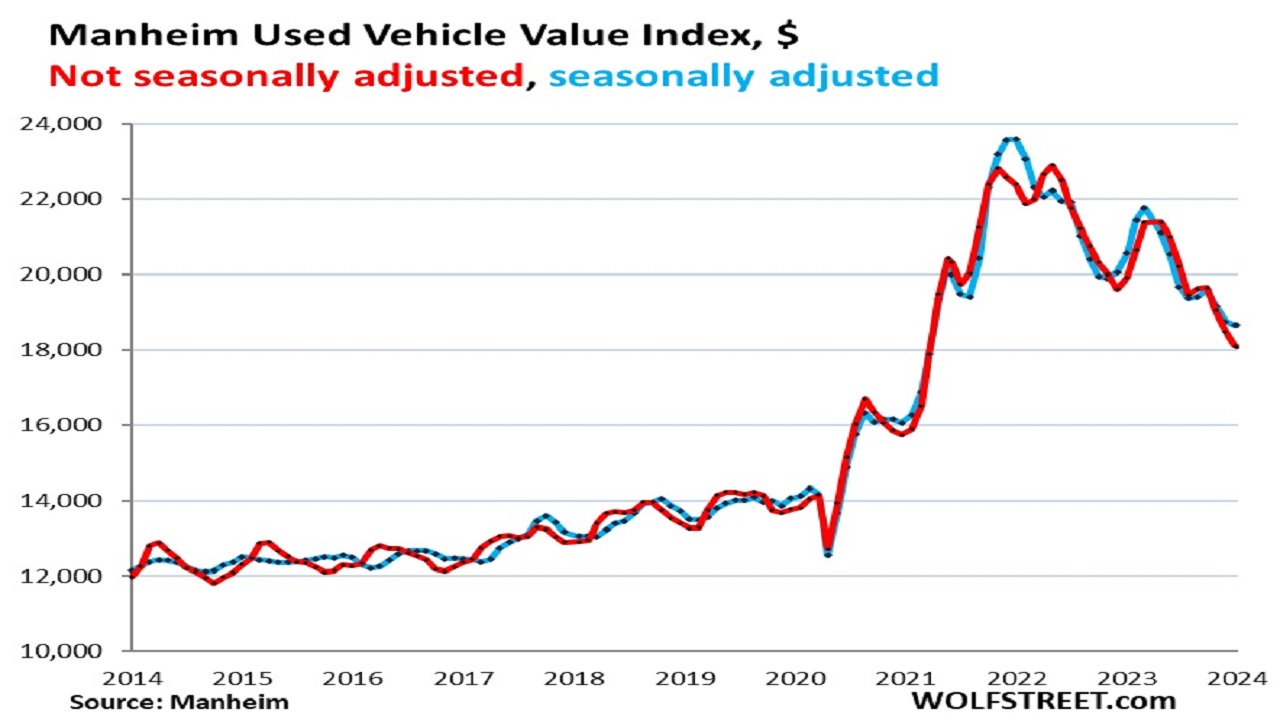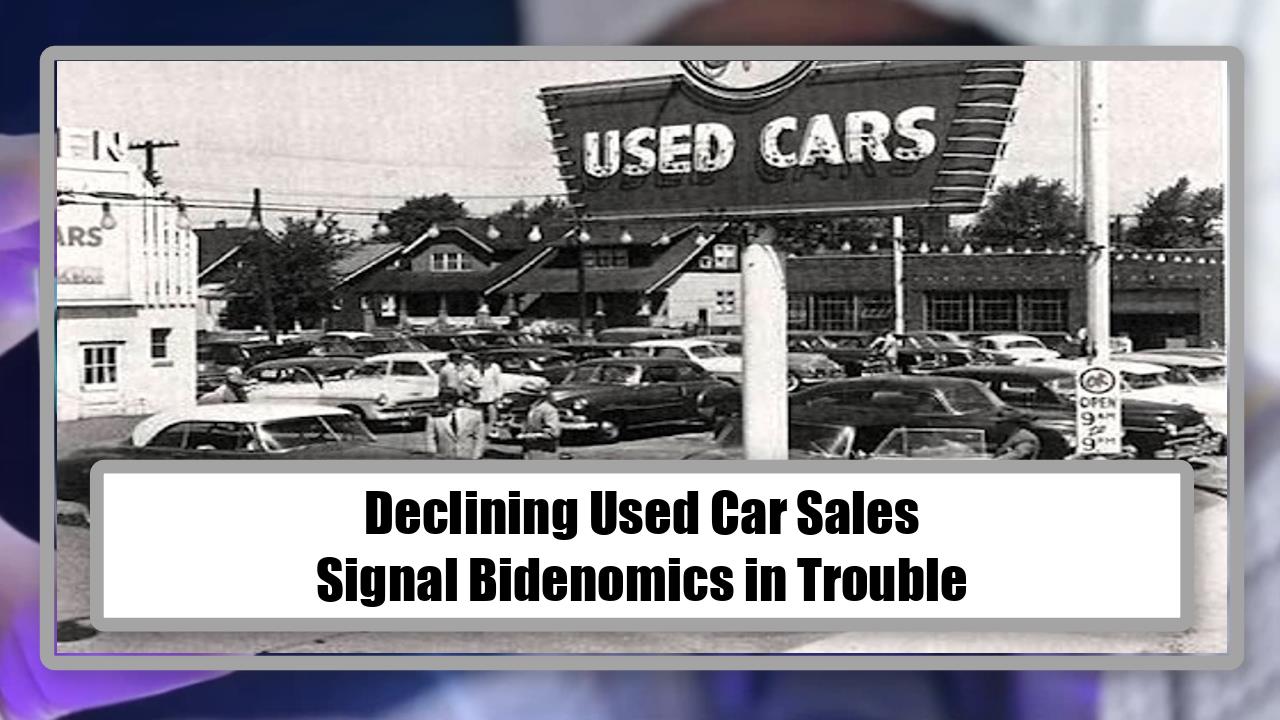Video:
Take our online poll:
AI Analysis:
A flattening or declining trend in used car sales can indicate several aspects of the economic landscape. While it's important to consider various factors influencing the automotive market, such trends can offer insights into the broader health of an economy. Here are some possible interpretations:
Economic Slowdown or Recession: A notable decrease in used car sales might be a signal of an economic slowdown or recession. During challenging economic times, consumers often delay or reduce discretionary spending, including big-ticket items like cars.
Consumer Confidence: The demand for used cars is closely tied to consumer confidence. When people feel uncertain about the future or their financial stability, they may be less inclined to make significant purchases, leading to a decline in used car sales.
Job Market Concerns: A weakening job market or concerns about job security can impact consumer spending. If individuals are worried about their employment prospects, they may postpone major purchases like cars, contributing to a decline in sales.
Credit Conditions: The availability and terms of credit can influence car sales. If there's a tightening of credit conditions or higher interest rates, it could deter potential buyers from making a purchase, impacting both new and used car sales.
Shifts in Transportation Preferences: Changing consumer preferences, such as a preference for alternative transportation modes (public transport, ridesharing) or a delay in purchasing due to considerations like remote work, can also influence used car sales.
Supply Chain and Inventory Issues: Economic disruptions, such as those caused by global events or supply chain issues, can impact the availability and pricing of used cars. A decline in sales may partly be due to challenges in maintaining sufficient inventory.
Government Policies and Incentives: Changes in government policies, such as incentives for new car purchases or shifts in regulations affecting the automotive industry, can influence buying patterns and contribute to fluctuations in used car sales.
It's crucial to consider these factors collectively and in the context of other economic indicators. Used car sales alone may not provide a comprehensive picture of economic health, but they can serve as a valuable component when assessing consumer behavior and economic sentiment. Analyzing various economic indicators alongside used car sales can help provide a more nuanced understanding of the broader economic landscape.
Chart:

References:


Comments